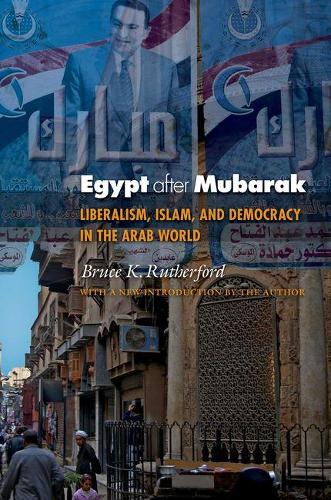
Egypt after Mubarak: Liberalism, Islam, and Democracy in the Arab World
(Paperback, Revised edition)
Publishing Details
Egypt after Mubarak: Liberalism, Islam, and Democracy in the Arab World
By (Author) Bruce K. Rutherford
Princeton University Press
Princeton University Press
7th May 2013
Revised edition
United States
Classifications
Tertiary Education
Non Fiction
Social groups: religious groups and communities
320.962
Physical Properties
Paperback
344
Width 152mm, Height 235mm
454g
Description
Which way will Egypt go now that Husni Mubarak's authoritarian regime has been swept from power Will it become an Islamic theocracy similar to Iran Will it embrace Western-style liberalism and democracy Egypt after Mubarak reveals that Egypt's secularists and Islamists may yet navigate a middle path that results in a uniquely Islamic form of lib
Reviews
"A fascinating and timely book... [Rutherford] details the long and persistent struggle of the judiciary to carve out an independent role for itself, even under a military dictatorship."--Fareed Zakaria, Time "[Readers will] be rewarded by Rutherford's ambitious effort to explain how significant political actors, specifically, the Muslim Brotherhood, the judiciary, and the business sector, can work in parallel, if not exactly together, to influence the country's trajectory over time. This is a novel approach to analyzing Egyptian politics."--Steven A. Cook, Foreign Affairs "[Egypt after Mubarak] clearly offers both an insightful account of Egyptian politics and a potentially fruitful framework for future comparative research on political change in the Arab world."--Waleed Hazbun, Perspectives on Politics "Bruce Rutherford thoroughly analyzes the dynamics and personalities of Egyptian politics and the prospects for Egypt once its pro-Western president, Hosni Mubarak, passes on."--Sheldon Kirschner, Canadian Jewish News "The author has studied closely the Brotherhood's campaign documents, and the book is based on primary sources. No student of the region can afford to ignore it."--A. G. Noorani, Frontline
Author Bio
Bruce K. Rutherford is associate professor of political science at Colgate University.
